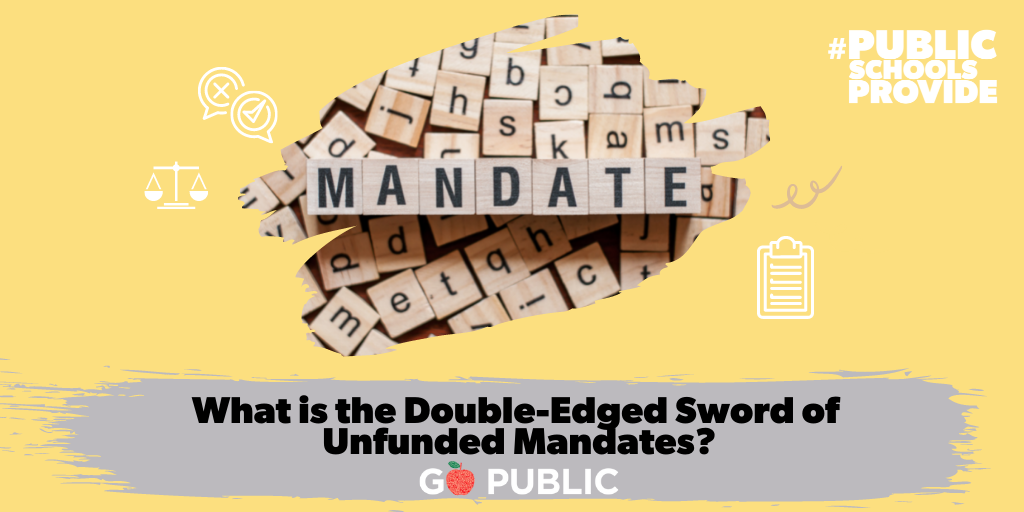What is the Double Edge-Sword of Unfunded Mandates?
An unfunded mandate for public education refers to a legislative act that requires a school district to implement some practice or procedure for which no monies have been allocated. In short, it is a requirement to do something for nothing – or minimal cost to the State, and with a cost to the school district. For example, the State of Texas requires that school districts submit volumes of data, but the State does not allocate resources for personnel, technology, or other direct costs; thus, the district is forced to take money from another area to pay for these requirements.
Response from “Ask Former Trustees – Clear Creek ISD Chapter”: Joanna Baleson, Ken Baliker, Jennifer Broddle, Bob Davee, Glenn Freedman, Ann Hammond, Charlie Pond, Page Rander, Dee Scott, Win Weber
Are unfunded mandates good or bad?
Often, they are both. In the example above, gathering the data may be useful to the district, to the state, and to every citizen. Yet, by not allocating the needed funds, districts are penalized financially.
Why should citizens care about unfunded mandates?
When the price of gasoline increases, service stations pass the cost along to us. When the cost of education increases, school districts may have to pass the costs along to taxpayers or risk short-changing students’ education as money is transferred to pay for these new expenses.
Thus, no matter how beneficial or well-meaning a mandate is, the attendant costs have real consequences for the school district and ultimately the taxpayer.
Whether intentional or not, the effect of an unfunded mandate is to influence what school districts do, thus making the legislators look good or efficient, without paying for the cost of their actions. Also, school boards and school districts may look inefficient, due to actions not of their making
What can be done to stop unfunded mandates?
It is not a simple matter, as both political parties tend to pass legislation that they favor while not negatively affecting the state budget – even though school district budgets are indeed affected.
Further complicating things are all of the groups who favor changes in schools, but who do not always factor in the costs of implementation or do the cost-benefit analyses or impact costs on a school district.
Either way school boards and districts must take a strong advocacy position when it comes to legislation impacting education. To the legislature’s credit, in recent years they have been more conscientious about attaching fiscal notes to bills prior to approving them.
Are school districts the only agencies affected? No. City, county, and every other state-based governmental agency is affected. According to the Texas Association of Counties, local taxpayers pay billions of dollars from unfunded mandates from both state and federal legislation and regulations. In turn, this drives up local taxes, increases the size of government, and removes accountability from the state and federal entities and passes that accountability down to the local level.























